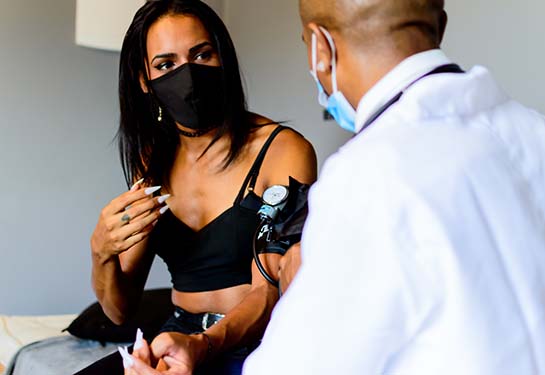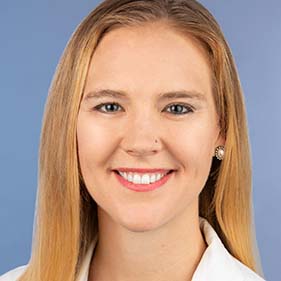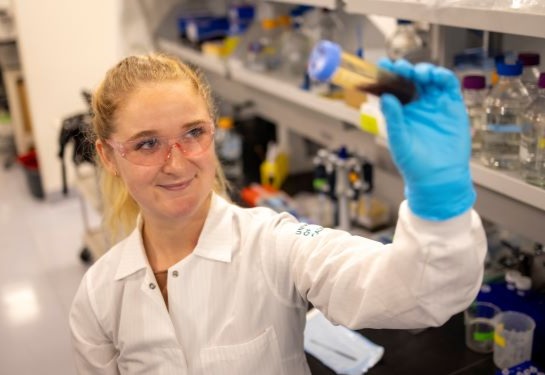New study explores experiences of transgender and gender expansive physicians
A new study entitled “Experiences of Transgender and Gender Expansive Physicians” was published on June 29, 2022, in the Journal of the American Medical Association’s JAMA Network Open. Angela Jarman, an emergency department physician at UC Davis Health, served as senior author on the study, collaborating with colleagues at several institutions across the country.
In 2021, approximately 1.2% of medical students nationwide identified as transgender and/or gender expansive (TGE), yet there is little understanding of the experiences of TGE physicians.
UC Davis strives to be a leader in providing care to LGBTQ+ communities and was again recognized as an LGBTQ+ Healthcare Equality Leader for the 10th year in a row, with a 100% score in 2022. Although most physicians receive education on the treatment of LGBTQIA+ patients and many institutions employ some form of diversity training, this study found that most TGE physicians experienced deep and overt transphobia on the job. All participants described emotional distress stemming from transphobia, feelings of isolation, and repeated effects of misgendering – described by one participant as “death by 1,000 cuts.”
“As frontline health care providers, it has always been a particular priority for the UC Davis Emergency Department to provide high quality, high value, equitable care to vulnerable patients that belong to the TGE community,” said Jarman who specializes in sex and gender medicine. “We wanted to expand what we know about the needs of the TGE community to include individual physicians and extend trauma-informed approaches to health care providers in addition to patients. The study yielded valuable insights and action items to make our workplaces more inclusive and physically and psychologically safe for everyone.”
The study yielded valuable insights and action items to make our workplaces more inclusive and physically and psychologically safe for everyone.” —Angela Jarman, UC Davis emergency medicine physician
Recommendations
The authors identified critical steps that individuals and institutions could and should take to mitigate the stigma and transphobia present in hospitals and clinics. At the individual level, and most fundamentally, study participants sought colleagues that would speak up against mistreatment.
For example, one participant shared: “We can’t do it alone. We, as transgender humans, nonbinary individuals, historically have been so low on the social ladder—and we're gaining. But at the same time, we can’t do it alone. We can’t necessarily purely advocate for ourselves. And even [if] we do, we need allies. And we need people that, you know, to stand with us and say, ‘Hey, this is not okay.’”
“I was shocked by how common it was that physicians were ‘outed’ as transgender by faculty and administrative procedures – things like welcoming new residents to a hospital using pre-transition names and photos,” said lead author Lauren M. Westafer, who identifies as lesbian, and works in the Department of Emergency Medicine at Baystate Medical Center in Springfield, Massachusetts.
The report said institutions can provide administrative assistance with transitioning (i.e., systemwide name change for credentialing), gender neutral bathrooms and changing spaces, and examine the trainings they provide and focus on implicit biases. Most importantly, the study findings clearly demonstrate that institutions must not be reactive. That is, they must not wait until a transgender or gender expansive person comes to them to trouble shoot these items as that forces individual to reveal that they are TGE and then potentially exposed to mistreatment.
Westafer, who is also a researcher in the Department of Healthcare Delivery and Population Sciences at UMass Chan Medical School – Baystate, said, “As a medical student I witnessed the ‘jokes’ that the care team, including the physicians, made about a transgender patient. Although there were curtains around the patient, the patient could certainly hear the comments - that patient who was sick and vomiting and seeking care from us. I felt sick, but I was a medical student in the rural South. I was terrified that if I spoke up, I would receive a bad evaluation or potentially ‘out’ myself.”
In this seminal study, the authors conducted a rigorous qualitative study of TGE physicians to characterize their experiences. This qualitative study used semi structured interviews and was conducted among 24 TGE physicians from across the United States from April 1 to December 31, 2021.





